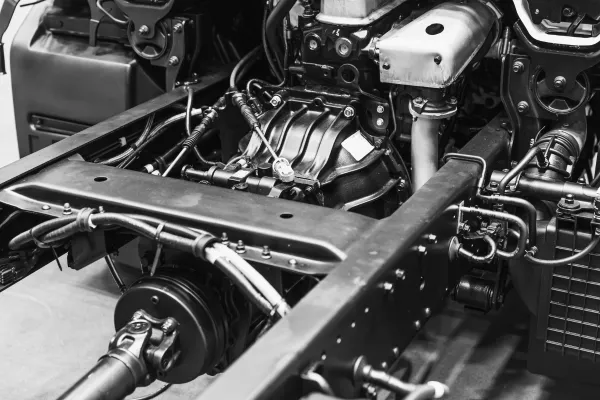Important Considerations for Making Sure High Quality and Durability in Utilized Engines
When taking into consideration the purchase of a made use of engine, guaranteeing its high quality and long life calls for a multifaceted strategy. Upkeep history is a critical element, as it supplies understanding into the engine's previous care and possible future integrity. Performance screening is likewise vital, offering a snapshot of the engine's functional efficiency.
Engine Background Assessment
In the realm of made use of engines, a thorough engine background evaluation is vital to guaranteeing top quality and integrity. Comprehending an engine's past can give vital insights into its efficiency abilities and possible future longevity. A careful background evaluation encompasses a number of vital aspects that play a considerable role in evaluating an engine's condition. First of all, upkeep documents are important. Regular maintenance, consisting of oil changes, filter substitutes, and set up tune-ups, indicate that the engine has actually been well-cared-for, lowering the chance of unforeseen failings.
In addition, reviewing any history of repair services or substitutes is important. Engines that have gone through considerable repair services might have underlying issues that might resurface. Comprehending the context of such repair services, whether as a result of making issues or owner neglect, is essential in developing a detailed evaluation. Analyzing the engine's mileage can serve as a sign of wear and tear. Lower gas mileage engines are usually better, however it is likewise crucial to think about how those miles were built up. An engine used largely for long-distance freeway driving might remain in far better condition than one subjected to regular stop-and-go city website traffic.
Essentially, an exhaustive investigation into an engine's background is necessary for making educated purchasing choices. used engines for sale.
Comprehensive Evaluation Overview
While comprehending an engine's background offers beneficial context, an extensive examination is the next action to ensure its existing problem lines up with historical information. The examination ought to begin with an aesthetic assessment, examining for signs of leaks, deterioration, and uncommon wear. Inspect the outside for oil stains or coolant marks, which might show underlying issues.
Next, review the engine's mounting system for any type of loosened screws or abnormalities that can affect efficiency. Pay attention to the condition of belts and pipes, as these elements are important for optimal engine functionality. Check out for splits, fraying, or any indicators of damage.

Identifying Damage
Recognizing signs of wear and tear is essential for assessing a made use of engine's long life and reliability. It entails a precise examination of numerous engine elements to determine their existing state and potential future efficiency.
An additional critical element is inspecting the engine's seals and gaskets. These elements are essential for preserving correct stress and protecting against liquid leaks. Evidence of oil leakages or used gaskets typically recommends wear and tear, possibly leading to much more serious issues if not resolved promptly. Furthermore, uncommon sounds during engine operation, such as knocking or ticking noises, might indicate internal damage or too much endure relocating parts like pistons or bearings.
The condition of webpage belts and hoses is equally crucial, as they play a crucial duty in the engine's general feature. Broken or torn belts and weak hoses are signs of maturing that can cause engine failing if neglected. Analyzing the oil condition and filter can provide insights into previous maintenance techniques, as unclean oil or stopped up filters recommend forget and increased wear.
Efficiency Screening Fundamentals
Assessing the wear and tear of engine elements sets the phase for an extensive analysis with efficiency screening. Performance testing serves as a critical procedure in identifying the operational honesty of an utilized engine.
Making use of dynamometers is a typical method in efficiency testing. These tools measure the engine's result across different problems, offering a thorough account of its performance. Additionally, on-road screening complements dynamometer analyses by observing engine actions under common driving situations, guaranteeing it meets the called for requirements for both safety and security and efficiency.
These devices evaluate engine monitoring systems, recognizing mistakes in digital components that could affect performance. Comprehensive testing not only verifies the engine's operational content status but also aids in forecasting future upkeep demands.
Upkeep and Care Tips
Correct upkeep and care are crucial to lengthening the life-span of a made use of engine and ensuring its consistent efficiency. Normal oil changes find here are paramount; making use of the supplier's advised oil kind and grade can stop extreme deterioration. Additionally, oil filters should be changed simultaneously to preserve ideal lubrication and cleanliness within the engine.
Checking liquid levels, consisting of coolant, transmission liquid, and brake fluid, is vital. Making certain these fluids go to appropriate levels aids avoid overheating and other mechanical concerns. Evaluating belts and hoses for signs of wear, such as splits or fraying, can prevent possible failings that may bring about expensive repair services.
Regular inspection of the air filter is also needed, as a clean filter makes certain effective air flow and combustion, consequently optimizing engine efficiency. Stimulate plugs need to be examined and replaced when required to maintain effective fuel burning and prevent engine misfires.
Last but not least, regular diagnostic checks making use of specialist tools can identify prospective concerns prior to they become significant problems. By adhering to these upkeep and care tips, made use of engine proprietors can guarantee their engines continue to be reliable, reliable, and efficient in performing well over an extensive period.
Conclusion
